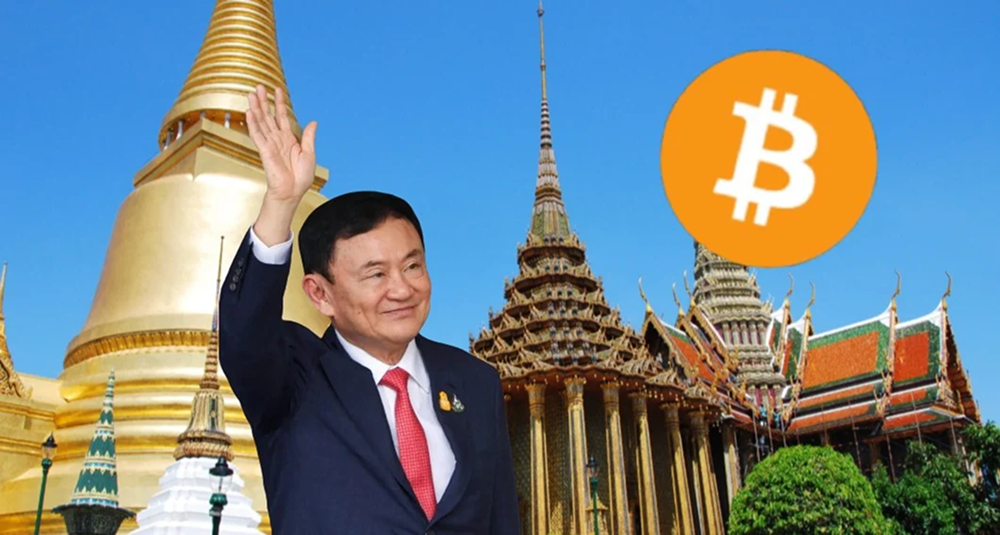On May 27, 2025, Thailand's Deputy Prime Minister and Finance Minister Pichai Chunhavajira announced a significant policy at an investment seminar in Bangkok: Thailand plans to allow foreign tourists to use cryptocurrencies for local consumption through credit card-linked platforms. This news quickly attracted the attention of the global crypto community and the tourism industry, seen as a key step for Thailand in the digital asset space. Meanwhile, the Thai government also plans to accelerate the modernization of its financial system by issuing blockchain-based "G-Tokens" and establishing a unified regulatory framework for traditional finance and digital assets.

Cryptocurrency Consumption: A New "Web3 Freedom" Experience for Tourists
According to reports from the Bangkok Post and the Nation, the Thai Ministry of Finance and the Bank of Thailand are jointly reviewing a pilot program that allows tourists to link their cryptocurrencies (such as Bitcoin, USDT, etc.) to credit cards for shopping, dining, and tourism services within Thailand. The transaction process is transparent for merchants: consumers pay with cryptocurrency, and the system converts it to Thai Baht in real-time through an exchange, with merchants receiving local currency, typically without direct exposure to digital assets. This design lowers the technical barriers for merchants to accept cryptocurrencies and avoids the currency volatility risks that may arise from directly using Thai Baht.
Pichai stated at the seminar, "As long as the support system is in place, this model can be implemented immediately in Thailand." He specifically mentioned that the first pilot will launch in the popular tourist city of Phuket, with plans to gradually expand nationwide after infrastructure and regulatory reviews are completed. Phuket, as the core hub of Thailand's tourism industry, attracts a large number of digital nomads and international tourists holding cryptocurrencies. Posts on X have pointed out that tourist hotspots like Pattaya have seen price premiums due to the influx of crypto tourists, indicating the potential influence of cryptocurrencies locally.
The innovation of this policy lies in its tourist-friendly approach. Tourists only need to complete identity verification (KYC) at a compliant exchange registered in Thailand to link their crypto assets to the payment platform, enjoying a consumption experience similar to traditional credit cards. This model not only meets the needs of global cryptocurrency holders but also injects new vitality into Thailand's tourism industry. It is reported that Thailand welcomed over 35 million foreign tourists in 2024, with tourism revenue accounting for nearly 20% of GDP. Allowing cryptocurrency consumption is expected to further attract high-net-worth tourists and boost the recovery of the tourism economy.
G-Token Plan: A Blockchain Experiment for Retail Investors in Government Bonds
In addition to the new policy for tourist consumption, the Thai Ministry of Finance also plans to issue "G-Tokens" through blockchain technology, allowing retail investors to purchase tokenized government bonds with a minimum investment of just 100 Baht (approximately $3). This plan was approved by the cabinet on May 13, and the first batch of G-Tokens worth 5 billion Baht (approximately $150 million) is expected to be officially issued in July. Patchara Anuntasilpa, director of the Public Debt Management Office, stated that G-Tokens are not traditional debt instruments but part of a budget borrowing plan aimed at testing market response. Investors will receive returns higher than bank deposit rates (1.25%-1.5%), although specific yields have not yet been disclosed.
The launch of G-Tokens marks another exploration for Thailand in the field of tokenized assets. Previously, former Prime Minister Thaksin Shinawatra proposed issuing government bond-backed stablecoins in January 2025, and G-Tokens are seen as an extension of this idea. Finance Minister Pichai emphasized that the plan fully complies with the regulatory requirements of the Bank of Thailand and aims to involve more retail investors in the digital economy, breaking the traditional bond market's monopoly by institutions and high-net-worth investors. Users on the X platform have reacted enthusiastically, with some commenting, "Investing in government bonds for just $3? Thailand is making Web3 accessible to everyone!"

Regulatory Reform: Unifying Traditional and Digital Asset Markets
To support the above plans, the Thai government is accelerating financial regulatory reforms aimed at unifying the legal framework for traditional capital markets and digital asset markets. Pichai pointed out that currently, the two are governed by different laws, leading to fragmented regulation that hinders the widespread application of digital assets. The reform will focus on simplifying compliance processes, enhancing market transparency, and ensuring a balance between investor protection and innovation. This initiative is in line with Thailand's recent crypto-friendly policies. As early as 2018, the Thai Securities and Exchange Commission (SEC) approved the legal trading of seven cryptocurrencies; by 2023, 20% of Thailand's population held cryptocurrencies, the highest proportion globally.
The Bank of Thailand has maintained a cautious approach to regulation. Previously, it has repeatedly warned commercial banks to avoid direct involvement in high-risk digital asset trading but remains open to innovation. In April 2025, the Bank of Thailand lowered the benchmark interest rate to 1.75%, creating a favorable environment for the high yields of G-Tokens. Analysts believe that Thailand's move aims to balance financial stability with technological advancement, attracting global capital inflows.
Global Significance and Future Outlook
Thailand's series of policies not only represents an important step in domestic financial modernization but also sets a benchmark for global cryptocurrency applications. By integrating cryptocurrencies into tourism consumption and government bond issuance, Thailand is exploring practical scenarios for digital assets in the real economy. Compared to other countries' cautious attitudes toward cryptocurrencies, Thailand's proactive embrace may give it a first-mover advantage, especially in attracting Web3 talent and capital.
However, challenges remain. Infrastructure development, regulatory refinement, and cybersecurity will be key to the success of the pilot. Users on the X platform have already expressed concerns: "While Thailand's moves are avant-garde, the KYC and payment system security of exchanges need to keep up." Additionally, the volatility of cryptocurrencies may pose a challenge to consumer confidence, and the Bank of Thailand needs to further clarify its risk management mechanisms.
Overall, Thailand is welcoming the wave of digital finance with an open attitude. From tourist consumption to G-Token issuance and regulatory reform, these initiatives not only enhance Thailand's international competitiveness but also provide a reference model for other countries. In the future, the results of the Phuket pilot and the market performance of G-Tokens will determine whether Thailand can secure a place in the global digital economy.
This article represents the author's personal views and does not reflect the position or views of this platform. This article is for informational sharing only and does not constitute any investment advice to anyone.
Join our community to discuss this event
Official Telegram community: t.me/aicoincn
Chat room: Wealth Group
免责声明:本文章仅代表作者个人观点,不代表本平台的立场和观点。本文章仅供信息分享,不构成对任何人的任何投资建议。用户与作者之间的任何争议,与本平台无关。如网页中刊载的文章或图片涉及侵权,请提供相关的权利证明和身份证明发送邮件到support@aicoin.com,本平台相关工作人员将会进行核查。



